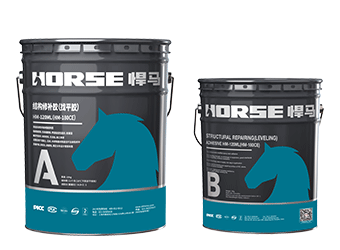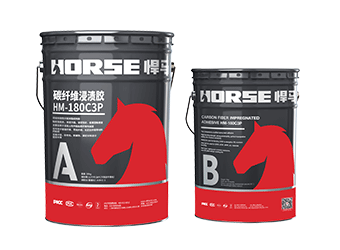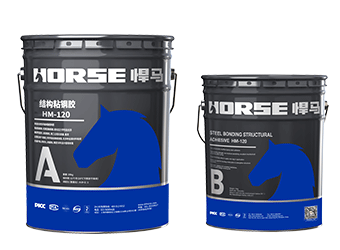Solutions
Horse Construction offers full range of structural strengthening materials with technical supports, documentation supports, products supports, project supports.
What Should We Do If The Epoxy Glue Has Crystallized?
Causes of crystallization
There are many reasons for the crystallization of epoxy resin, mainly the following factors:
1. High purity: crystals are all high purity, epoxy resin is the same, the higher the purity, the narrower the molecular distribution, the easier it is to crystallize.
2. Low viscosity: the lower the viscosity, the faster the crystallization speed.
3. Impurities: solid impurities are usually seed crystals for crystal growth. Adding some precipitation pigments and fillers can easily lead to crystallization. In comparison, the larger particle size and higher dosage are less likely to induce crystallization.
4. Temperature: Excessive temperature change is a common cause of crystallization, and day and night temperature fluctuations will start or accelerate the crystallization rate. In addition, ultra-low temperature (below 5°C) will accelerate crystallization.
5. Moisture: The higher the moisture content, the easier it is to crystallize.
All resins and curing agents have the possibility of crystallization, which is the transformation of a substance from a liquid to a solid crystalline state. The principle of crystallization of epoxy resin is similar to that of other materials. High purity, low viscosity, impurities, extremely cold environments, and hot and cold cycles will increase the possibility of crystallization.
How to avoid crystallization
1. Reduce the purity of epoxy resin, such as adding other types of epoxy resin.
2. Use epoxy resin with low crystallization tendency or non-crystallization.
3. Storage conditions: The storage temperature is higher than 40℃ to prevent crystallization. Normally, if the temperature is higher than 25°C, the risk of crystallization can be reduced, but excessive temperature fluctuations should be avoided. For humidity requirements, the relative humidity is generally required to be below 50%, and the sealing of the packaging must be strictly required to avoid crystallization caused by water absorption.
Crystallization solution
1. Water bath heating method:
Put the epoxy resin in the water, the water temperature should be between 50 ℃ and 60 ℃, and stir the colloid in one direction while heating, to ensure that all the crystals are completely melted. Any tiny unmelted crystal can be used as a "seed" to trigger crystallization again within a few days.
Therefore, the stirring time should not be too short, to ensure that all the crystals on the wall and bottom of the container are also melted, and the heat is evenly distributed. Stir evenly until the crystallization completely disappears before construction.
Note: The heated epoxy resin must be cooled to room temperature before use, otherwise it is prone to explosion.
2. Heating equipment:
Arrange and stack the epoxy resin in a ring shape, reserve a 1-meter wide area in the middle of the discharge heating device, surround the epoxy resin with plastic cloth or color striped cloth to form a closed space, and continue heating until the epoxy resin returns to its original state.
3. Sunlight heating:
Use a sun lamp to bake the epoxy resin, stir while heating, until the crystals are completely melted, and the gel can be used after it returns to its original state.
4. Other reasonable heating measures can also solve the problem of epoxy resin crystallization.
If crystallization occurs again, heat it again and repeat the melting process. It can be kept at 50°C for a few hours to melt the epoxy resin again. The melted liquid epoxy resin can still be used, but it is not suitable for heat treatment for those that have already added a curing agent.
Recommendation: Pay attention to reducing temperature fluctuations during transportation and storage. It is recommended to store in a dry, high-temperature constant-temperature warehouse. When using, do not stir too much at one time, it is ready to use. And make sure that there is no resin residue in the nozzle, lid, etc. after use, to prevent crystals from forming in these places.
Summary: The crystallization of epoxy resin is a physical reaction, not a chemical reaction, so it will not affect the performance of the adhesive. But for reinforcement construction, the crystalline adhesive must be heated and melted before it can be used, which undoubtedly increases the operation steps and makes the construction process cumbersome.
You can find anything here you are in need of, have a trust trying on these products, you will find the big difference after that.

Good thixotropy carbon fiber leveling adhesive for concrete surface repairing

Good impregnation carbon fiber adhesive for applying carbon fiber reinforced polymer(CFRP) wrap for structural strengthening

Two-component epoxy modified epoxy structural strengthening adhesive for bonded steel plate to concrete